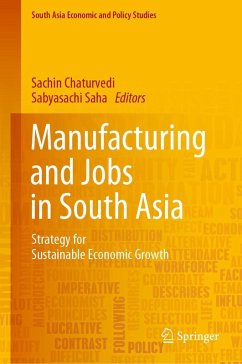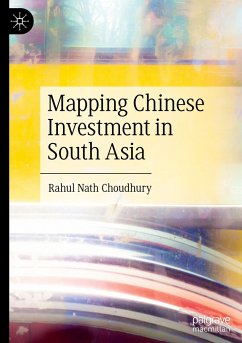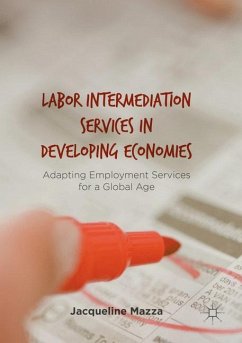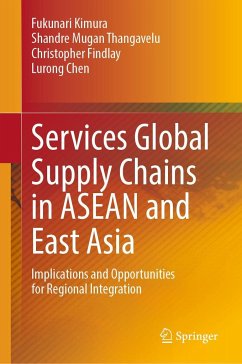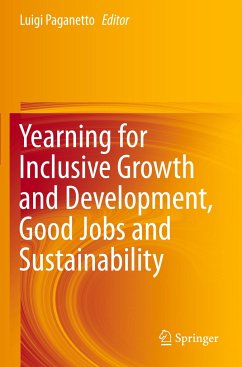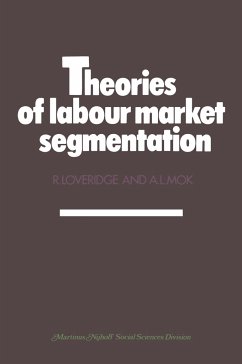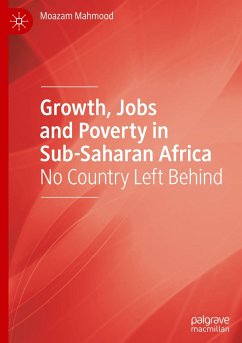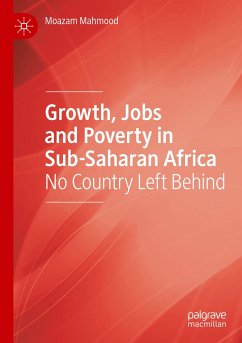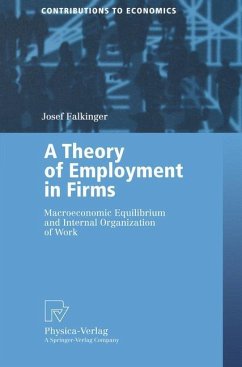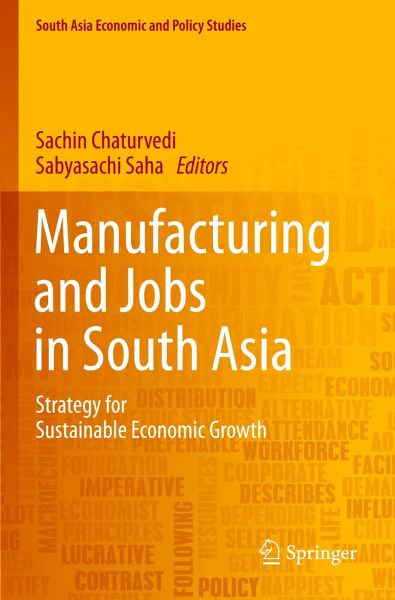
Manufacturing and Jobs in South Asia
Strategy for Sustainable Economic Growth
Herausgegeben: Chaturvedi, Sachin; Saha, Sabyasachi
Versandkostenfrei!
Versandfertig in 6-10 Tagen
129,99 €
inkl. MwSt.

PAYBACK Punkte
65 °P sammeln!
This book analyzes the structural factors that underlie the persistent mass poverty and extreme inequality in South Asian countries. It highlights the fact that the supposed trade-off between output growth and job creation is a false dilemma. Growth can create jobs, and jobs can drive growth, mutually reinforcing one another. Increased employment and better jobs would mitigate the problems arising from a widening inequality gap. The book argues that policies focused on employment generation, mostly through industrialization, are the way forward in terms of providing livelihoods, sustaining gro...
This book analyzes the structural factors that underlie the persistent mass poverty and extreme inequality in South Asian countries. It highlights the fact that the supposed trade-off between output growth and job creation is a false dilemma. Growth can create jobs, and jobs can drive growth, mutually reinforcing one another. Increased employment and better jobs would mitigate the problems arising from a widening inequality gap. The book argues that policies focused on employment generation, mostly through industrialization, are the way forward in terms of providing livelihoods, sustaining growth and reducing inequality.
The book is divided into two main parts. Part A explores cases in selected countries in South Asia in detail, primarily focusing on the opportunities and challenges of job creation in the manufacturing sector, as well as related issues, including constraints on manufacturing-sector growth in South Asia, exports and trade linkages, participation in valuechains and the role of investment. In turn, Part B addresses a number of aspects that can promote a deeper understanding of strategies for industrialization and employment creation in the South Asian context, including regional cooperation, skill development, and industrial competitiveness. Gathering contributions from some of the region's top minds, this book is of interest to scholars, researchers, policymakers and industry analysts alike.
The book is divided into two main parts. Part A explores cases in selected countries in South Asia in detail, primarily focusing on the opportunities and challenges of job creation in the manufacturing sector, as well as related issues, including constraints on manufacturing-sector growth in South Asia, exports and trade linkages, participation in valuechains and the role of investment. In turn, Part B addresses a number of aspects that can promote a deeper understanding of strategies for industrialization and employment creation in the South Asian context, including regional cooperation, skill development, and industrial competitiveness. Gathering contributions from some of the region's top minds, this book is of interest to scholars, researchers, policymakers and industry analysts alike.





